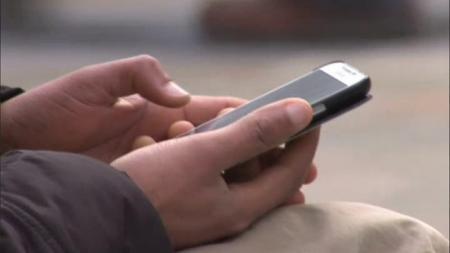
Research by a professor at Illinois State University has found that parents who say they struggle to limit their time looking at phones, tablets and other technological devices have children who exhibit more behavioral problems including acting out, crying or other negative behaviors.
"We need to critically examine our device use," said Brandon McDaniel, family and consumer sciences assistant professor and author of a study scheduled to be published this week in the psychology journal Child Development, reported chicagotribune.com.
"Let's be mindful of how phones can influence us, so that we can be the master of our phones instead of our phones being the master of us."
For the study, McDaniel surveyed 170 parents across the US on 'technoference,' or how technology affects interactions between parents and children. The study is the among the first of its kind in the developing field of research that explores the effect of technology on relationships, McDaniel said.
Results showed that the parents who reported problematic or addictive use of technology — checking phones often, feeling lost without them or turning to cellphones when they are lonely — also reported that their relationships with their children were being interrupted. The interruptions led to kids acting out, turning inward with feelings, or exhibiting aggressive behavior or crying spells, McDaniel said.
McDaniel, whose website includes the motto 'working to make families stronger,' conducted previous research that showed that mothers in co-parenting relationships were less satisfied in their relationship when there was more technoference.
He noted that his aim is not to make parents feel guilty about their habits, but rather to help the public be mindful of the way technology is changing the way we interact.
This is just the day and age that we live in. These devices are designed to absorb our attention," McDaniel said. "Yes, you're going to be distracted sometimes, but we need to try to minimize those distractions, realizing that your children are not always going to be little."
Scott Levin, a family physician and director of the Family Medicine Residency Program at West Suburban Medical Clinic in Oak Park, said the findings inspired him to begin talking to patients about the drawbacks of parental screen time. Too often, parents pay attention only to the children's screen time regulations thinking that is the only way to keep use down, Levin said.
"Parents are so plugged into this, but then they lose track of themselves," Levin said. "If we're not aware, as parents, of what we're modeling for our kids, then there are high prices to pay."
